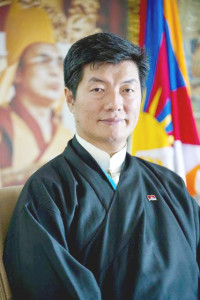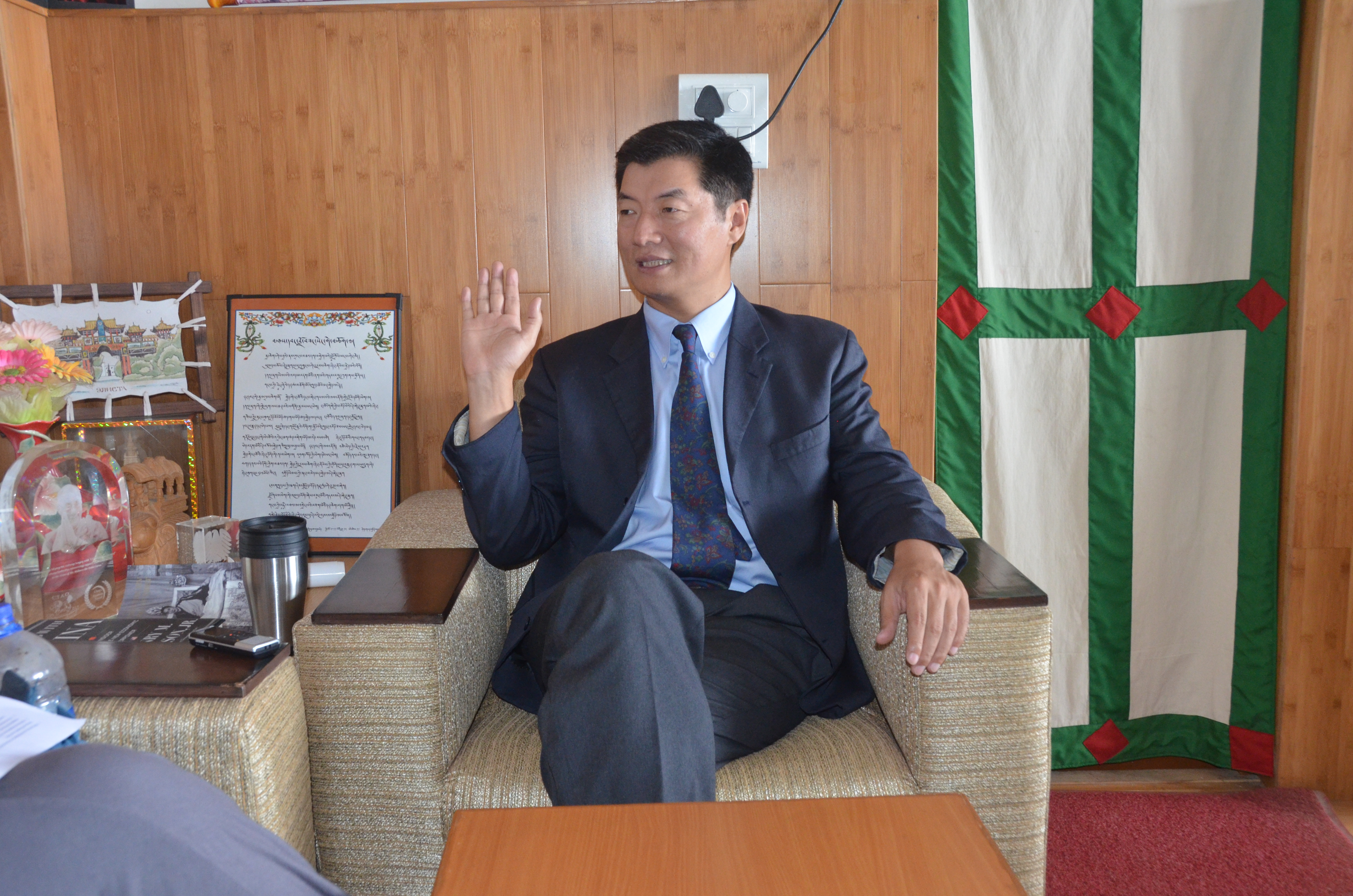PROFILE:
- Born in the Tibetan refugee community of Darjeeling in 1968
Education:
- Graduated from the Tibetan school in Darjeeling
- Received his BA (Hons) and LL.B degrees from the University of Delhi in India.
- In 1995, attended Harvard Law School on a Fulbright Scholarship, where he received his LL.M degree.
- In 2003, organised five conferences between Chinese and Tibetan scholars, including a meeting between the Dalai Lama and thirty-five Chinese scholars at Harvard University.
- In 2004, received a SJD degree from Harvard Law School, the first Tibetan to do so.
- In 2004, received Yong K Kim’ 95 Prize of excellence for his dissertation Democracy in Distress: Is Exile Polity a Remedy? A Case Study of Tibet’s Government-in-exile.
Work History:
- In 2006, was elected one of 24 Young Leaders of Asia through the Asia Society.
- Became a Senior Fellow at the East Asian Legal Studies Programme at Harvard Law School through 2011. Sangay specialises in Tibetan law and international human rights law.
- In 2011, was elected Sikyong of the Central Tibetan Administration, with 55 percent of the votes.
Key Points:
- Official campaign points will be released September 3, 2015.
On August 12, Lobsang Sangay confirmed in a press conference that he will run for re-election as Sikyong this October. Whilst Dr Sangay’s official campaign points will not be released until early September, it can be assumed that the theme of consolidation will play a key role. In both the press conference announcing his candidacy and a recent interview with Contact Magazine, the Sikyong stated that a primary motivation for his re-election bid is to consolidate key areas of improvement. The exiled Tibetan community have seen improvements in primary and tertiary education and healthcare, as well as an expansion of the Tibetan professional class during the his current term. Based on this, a renewed concentration on these areas can be expected in his upcoming campaign.
Dr Sangay has also reflected on his role in the transitional period to a democratic government. Whilst he is quick to give credit to the unity and strength of the Tibetan community for the smoothness of the transition, he does recognise that his presence as the head of government at that time was an important symbol of stability. “Stabilising the anxiety and the anxiousness to a new normal is the biggest achievement from all sides…we send a very powerful message to the Chinese Government – we are here to stay and we’ll be stronger and we will fight.”
The Sikyong also emphasised a belief that the continuation of his personal diplomatic relationships within India and elsewhere around the world will contribute significantly to the Central Tibetan Administration’s (CTA) ongoing stability. He stated that any success he has had in international relations has been a result of making personal connections and then institutionalising them. “I have spent four years opening doors and now if a new person comes, you don’t know whether that door will open or not.”
Despite his youthful involvement with pro-independence groups Tibetan Youth Congress and Students for a Free Tibet, Dr Sangay gives his full and ongoing support to the Middle-Way Approach. On the question of Tibetan independence he is clear. “Do we deserve to be independent? Absolutely. There is no doubt about it….but because you are in the CTA, there is a policy, a pragmatic policy, which has taken into consideration so many factors”. He self-identifies as a pragmatist, one who can separate personal emotions with a rational analysis regarding the best course of action. On fellow candidate, the pro-Rangzen Lukhar Jam, the Sikyong strongly contests the idea that Jam’s goal of Tibetan independence means that he is a radical. “He is not a radical. We all are fighting for a cause, there is just a difference of approach…once you say radical, then the other person becomes mild or weak. It is nothing like that.” In light of his diplomatic experience abroad as well as with the Tibetan Parliament-in-Exile, Dr Sangay continues to support the Middle-Way. From his ringing endorsement of it as a “wise, pragmatic blueprint strategy”, it seems that this support of the Middle-Way Approach is not only his perspective as a parliamentarian, but as a Tibetan.
When asked what he would like to improve upon if re-elected, Dr Sangay stated that he wants to provide greater accessibility for Tibetans who seek his day-to-day assistance. In public talks he has demonstrated a recurring focus on impoverished Tibetan individuals who fall through the cracks of institutionalised systems. This suggests that we can expect a greater and more active social welfare commitment from him in his upcoming campaign.
As a Tibetan born in a bucolic refugee community in Darjeeling, Dr Sangay is often asked about the key to his academic and political success. To this question he is quick to point out that there is no magic formula. His approach to political challenges and personal obstacles is to deal with them “one day at a time, work hard, do the best you can and keep going forward.” Like all political leaders, Dr Sangay has faced his fair share of criticism during his term as leader of the Parliament-in-Exile. Only time will tell whether his pragmatic approach will appeal once more to the Tibetan community.
Keep up to date on election issues by following this link to our election news page: Election 2016






 Print
Print Email
Email